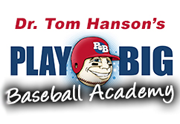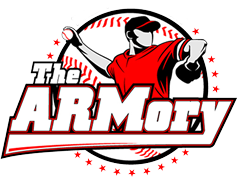Amateur Gunslingers: A Dying Breed? Let’s Hope So
In the old Wild West days, if a town had a problem with a gang of outlaws, they often hired paid gunslingers to come in and take care of their dirty business. Many times, however, when the actual bullets started flying, these hired mercenaries with no vested interest in the outcome failed to deliver the desired results. The towns would have been better served to gather a few of the bravest among them, train them on the details of the mission, and let them make a stand to protect those they love with their last breaths. Such is the state of amateur baseball today.
In 1985 I was a catcher at The Citadel and learned a lesson about baseball I will never forget. My coach was ABCA hall of famer Chal Port, an old school tough guy who didn’t hesitate to let you know when you had screwed up.
It was late in the season and we were in a midweek game with a strong opponent. Our pitching staff, which had been watered down by 3 tough conference games against Jack Leggett’s Western Carolina squad over the previous weekend, was somehow getting it done and keeping us in the game with smoke and mirrors.
We had a lead late in the game, but our pitchers were faltering. A barrage of hits in the ninth inning had our opponents mounting a furious comeback. Hit after hit, produced run after run until they had the tying run on second base with 2 outs. The next batter predictably singled sharply to centerfield. Our centerfielder, Lee Glaze, was an All American with a rocket arm who led our conference in outfield assists. Although I might have been under talented, I was ultra competitive and would do almost anything to keep a guy from scoring. All season long, I had aided a few of those outfield assists by first blocking the plate, then catching the ball and tagging the runner (admittedly a completely illegal play).
As expected, Lee fielded the ball cleanly and unleashed a frozen rope toward home. The runner was fast–real fast, but as I sized up my options I thought we might have a chance to get him and end the game. The first baseman raced over to the cutoff position. As the play evolved I quickly realized the runner was probably going to be safe. I shouted through the crowd noise, but probably a little too late, “cut 2, cut 2, cut 2”. The first baseman apparently didn’t hear me and let the ball go. I stuck my left leg across the runner’s path and braced for impact. He slid in with fury and clipped my leg out from under me. The impact vaulted me to a horizontal position. I reached up with my glove and snagged the ball, and as I spun head over heels, landing on my keester I saw the tying run cross the plate safely. The go ahead runner jogged into scoring position at second, as I was in no position to make a throw.
The next batter hit a flair to RF and the winning run scored without a throw, leaving us on the field with a bitter loss.
In the post game meeting, Coach Port asked the following question, “Can anyone tell me why we lost that game?”
I, like everyone else on the team had learned to avoid eye contact with the coach at moments like this. Coach Port was notorious for blowing guys up verbally after tough losses, so we all braced for the verbal tongue-lashing he was about to give our weekday pitching staff for failing to hold the lead. I was shocked at his next statement.
“No one?…Ok, I’ll tell you why we lost this game! We lost because our catcher, Randy Sullivan, doesn’t know how to play this game and doesn’t know how to keep the go ahead run out of scoring position.”
I was devastated, But Coach Port was right. I should have kept the runner out of scoring position. It was my responsibility. I said nothing.
On the bus ride home I whispered to our first baseman, “Did you hear me say cut 2?”
“Heck yeah”, he replied, “but the way our pitchers were going, I thought we had a better chance trusting Lee Glaze’s arm than hoping they wouldn’t get 2 more hits to beat us.”
Of course he readily allowed me to be rolled under the bus and trampled without coming to my defense. I would have done the same thing. We had all learned not to try and defend a teammate on Coach Port’s hot seat. Sure you felt bad for a guy who was getting verbally pummeled, but mostly you were just glad it wasn’t you.
I can tell you one thing. I learned a lesson for sure.
When you have a lead late in the game, if there is any doubt, keep runners off second base.
More importantly, this story underscores how as college players we were taught to think our way through the situations of the game. The score, the inning, the abilities of your opponents and teammates, and a multitude of other factors all dictate how you approach to every play. The first baseman and I both had a plan, and while it might not have jibed exactly with that of the coach, at least we were thinking.
I tell this story not to take you on a stroll down memory lane, but to illuminate a trend I see rapidly becoming an epidemic in amateur baseball.
My friend Mike Milchin, a former major leaguer, Olympic gold medalist and current MLB agent sent me an Orlando Sun-Sentinel article today. I found it to be a disturbing and enlightening expose` on the jungle that travel baseball has become.
http://touch.sun-sentinel.com/#section/-1/article/p2p-74839644/
In the article the reporter does an outstanding job of revealing the shady, ugly underbelly of travel baseball. She reveals the truth about how elite travel teams and parents are exploiting our young men often at the expense of their health and psychological well-being.
Parents are pimping their kids out to the highest bidder in exchange for gifts, travel expenses and even straight up cash. Players hop from team to team playing as many as 180 games in a year for up to 12 different teams. Team “owners” fly kids in for a tournament only to have them play for a rival team the following week.
These elite tournament teams rarely practice together and mercenary players market their appearances like soldiers of fortune. I encourage you to read the article and consider the state and direction of the game.
The story is extremely thorough and well written and identifies many emerging problems of youth sports. However, it does not mention one factor I have found to be pervasive and deleterious to the game.
Our hired gun, showcase oriented travel ball system has produced a generation of players who don’t know how to play the game.
Because these players for hire never play for an actual team, they never learn the subtle nuances of winning baseball.
Just this weekend I witnessed a college centerfielder who threw to 3rd base and to home on consecutive base hits with a 3 run lead late in the game, allowing critical runners to advance to scoring position. I saw several elementary baserunning blunders and observed players incapable of executing or defending a bunt.
You see, when a player hops from team to team, or attends endless showcases where he meets his teammates for the first time in the dugout before the game, he never learns a team system or how to execute fundamental plays of the game. He cannot judge the abilities of his teammates and mold his game to bring out the best in them. His entire approach to the game is about putting his raw talent on display. It is both selfish, and in my experience, highly ineffective.
My sons have all played for Chet Lemon’s Juice, an elite travel ball team with a rich tradition over the past 18 years. To his credit, Coach Lemon has never bowed to the pressure of seeking out sponsors or paying for players. Even with a history of 29 first round draft picks from within the program, every player is required to make an equal investment in time and money. Players are required to attend practices, and each member of the team pays the same dues. The coaches are all volunteers, including Coach Lemon. This creates low overhead and keeps the dues very reasonable, but every player and family has skin in the game.
Essentially, Coach Lemon calculates the cost of the tournaments and umpire fees and divides it by the number of players on the team. The team practices 1-2 times per week and works constantly on things like bunt defenses, first and third situations, cutoffs and relays, pickoffs, PFPs, rundowns, baserunning, bunting, hitting behind runners, and executing a hit and runs.
Make no mistake, player development and exposure is at the heart of the program, but it is always done within the framework of the team.
Last October, when the Juice made the run to the finals of the WWBA World Championship, I spoke to several college recruiters and pro scouts who marveled at the baseball IQ of Chet’s teams. “They just know how to win.” Trust me, that knowledge did not happen by accident.
With the recent NCAA limits on players’ exposure to direct coaching time, it is paramount for a player to know the details of winning baseball before he gets to college. I believe that in the not too distant future college recruiters and scouts will seek out players who not only possess the raw talent to succeed, but also have been taught to play the game the right way.
The pendulum will soon swing toward the side of players who are able to execute the fundamentals of the game while creating synergistic relationships with teammates on a quest for a common goal—winning games and championships.
Baseball is bigger than any one person or group of people and it will always find a way to right itself.
So to those highly talented prospects out there, I offer this advice. Choose your travel team not based on the perks or benefits you receive, but on their commitment to developing you into what will surely be the next sought after commodity—a talented, well developed player who understands the intricacies of playing winning TEAM baseball.









Leave a Reply